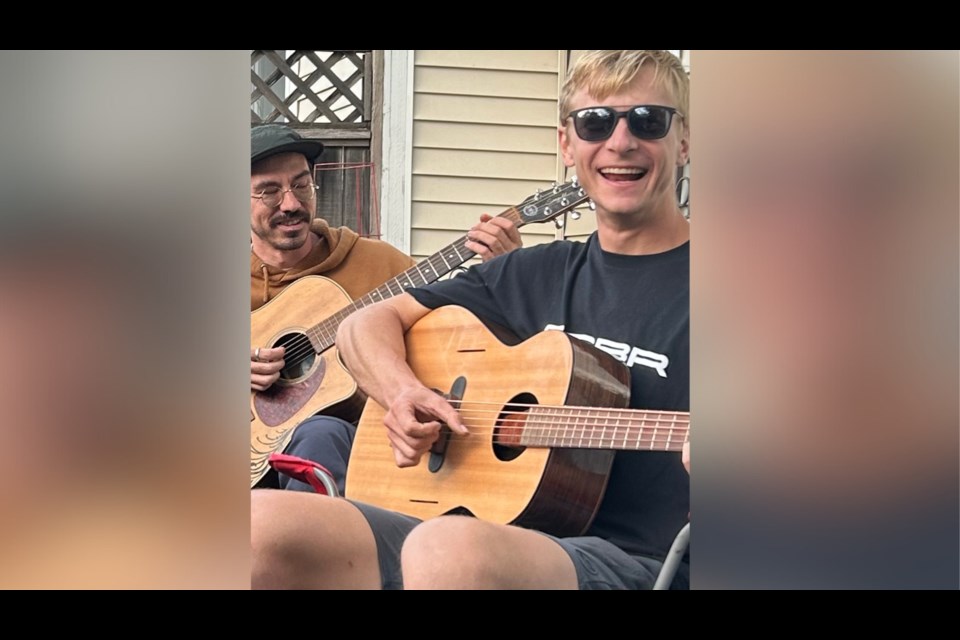He had no idea what was about to happen.
Henry Dobell was sitting on his parents’ front porch in Victoria when he heard the squeal of the side gate. He figured it was probably his dad. It was 2019, and he’d been experiencing symptoms consistent with his diagnosis of manic Bipolar 1, but he didn’t believe entering the psych ward was necessary. He’d been living with his condition since the age of seven.
“These two cops just appeared out of nowhere and started rapidly asking me questions, and I already had trauma with cops, so I didn’t know the right way to respond. Then suddenly they just put me in handcuffs and threw me in their [police] wagon,” Dobell told the Squamish Chief.
“They said ‘we’re going to take you to the psych ward’ and I ended up in this concrete bunker-type room at Royal Jubilee. I was having a panic attack, so they gave me a shot in the ass, drugged me with something, and I ended up in there for a month.”
This turn of events highlights the way Dobell believes people with mental health challenges are “treated unfairly and without autonomy,” which is one of the themes he plans to cover during his Nerd Nite talk at the Brackendale Art Gallery: Café & Culture Centre on Sept. 3. As a local musician and organizer of community jam sessions, he plans to play piano during his talk to emphasize the therapeutic role of music in his life.
Local Nerd Nites feature three speakers who share their "nerdy" passions with the audience.
“I’m not trying to traumatize or bore people. It’s just ‘here’s a guy who is bipolar and here’s how he copes.’ I’m not a guide, this is just how I do it,” said Dobell.
Bipolar disorder was formerly called manic depression, and involves radical mood swings that vacillate between overwhelming highs and soul-crushing lows. The distinction between the two types depends on whether the person diagnosed has ever been through a manic episode—which Dobell has, making him Bipolar 1. These episodes can involve a break from reality or hallucinations, which he has experienced multiple times.
According to Dobell, there are a lot of misconceptions about bipolar disorder, which can lead to harmful advice and attitudes. He estimates he spent 70% of his college years in a manic state, an unsustainable situation that ultimately led to a big crash and dropping out altogether.
“When we’re manic, we get all our shit done, we have cool interactions with people, and people think we’re rad. People like ‘manic Henry’ and don’t always realize why it’s harmful,” he said.
“A lot of voices in this region suggest you shouldn’t take meds for bipolar. It’s quite common as an archetype, they figure you should be able to get by with sunshine and exercise, which led to me experimenting with not taking my meds,” he said.
Dobell has sought out multiple therapeutic interventions for his disorder. Through Squamish Mental Health, he’s been taking dialectical behaviour therapy (DBT), which he highly recommends for people in crisis. Similar to cognitive behavioural therapy, it promotes the concept that two seemingly opposing ideas can be true simultaneously—like the importance of self-acceptance and the need for change.
But his favourite form of therapy is still music.
“What helps me most right now is my jam squad—which is 150 musicians-deep—who come to my house every Saturday. If music is medicine, then jams are my therapy group,” he said.
“People hold these things in different camps, like it’s ‘take meds’ or ‘go holistic’ or ‘play music,’ but they’re not separate. They’re all different tools. You wouldn’t build a house with just a hammer, and it’s the same with mental illness—you need a suite of tools.”
For more detailed information on bipolar disorder, go to the Canadian Mental Health Association website.
For help locally, call the Squamish Mental Health and Substance Use Services Intake at (778) 894-3200 for information about available services and how to connect.
For tickets to the upcoming Nerd Nite, which begins at 6:30 p.m. on Sept. 3 at the Brackendale Art Gallery, go to Eventbrite.



